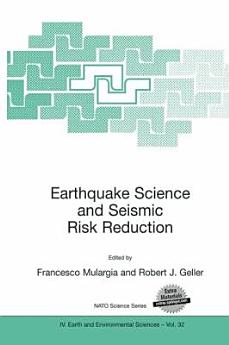Earthquake Science and Seismic Risk Reduction
F. Mulargia · R.J. Geller
thg 12 2012 · NATO Science Series: IV Sách 32 · Springer Science & Business Media
Sách điện tử
338
Trang
reportĐiểm xếp hạng và bài đánh giá chưa được xác minh Tìm hiểu thêm
Giới thiệu về sách điện tử này
What is the first thing that ordinary people, for whom journalists are the proxy, ask when they meet a seismologist? It is certainly nothing technical like "What was the stress drop of the last earthquake in the Imperial Valley?" It is a sim ple question, which nevertheless summarizes the real demands that society has for seismology. This question is "Can you predict earthquakes?" Regrettably, notwithstanding the feeling of omnipotence induced by modem technology, the answer at present is the very opposite of "Yes, of course". The primary motivation for the question "Can you predict earthquakes?" is practical. No other natural phenomenon has the tremendous destructive power of a large earthquake, a power which is rivaled only by a large scale war. An earth quake in a highly industrialized region is capable of adversely affecting the econ omy of the whole world for several years. But another motivation is cognitive. The aim of science is 'understanding' nature, and one of the best ways to show that we understand a phenomenon is the ability to make accurate predictions.
Xếp hạng sách điện tử này
Cho chúng tôi biết suy nghĩ của bạn.
Đọc thông tin
Điện thoại thông minh và máy tính bảng
Cài đặt ứng dụng Google Play Sách cho Android và iPad/iPhone. Ứng dụng sẽ tự động đồng bộ hóa với tài khoản của bạn và cho phép bạn đọc trực tuyến hoặc ngoại tuyến dù cho bạn ở đâu.
Máy tính xách tay và máy tính
Bạn có thể nghe các sách nói đã mua trên Google Play thông qua trình duyệt web trên máy tính.
Thiết bị đọc sách điện tử và các thiết bị khác
Để đọc trên thiết bị e-ink như máy đọc sách điện tử Kobo, bạn sẽ cần tải tệp xuống và chuyển tệp đó sang thiết bị của mình. Hãy làm theo hướng dẫn chi tiết trong Trung tâm trợ giúp để chuyển tệp sang máy đọc sách điện tử được hỗ trợ.








